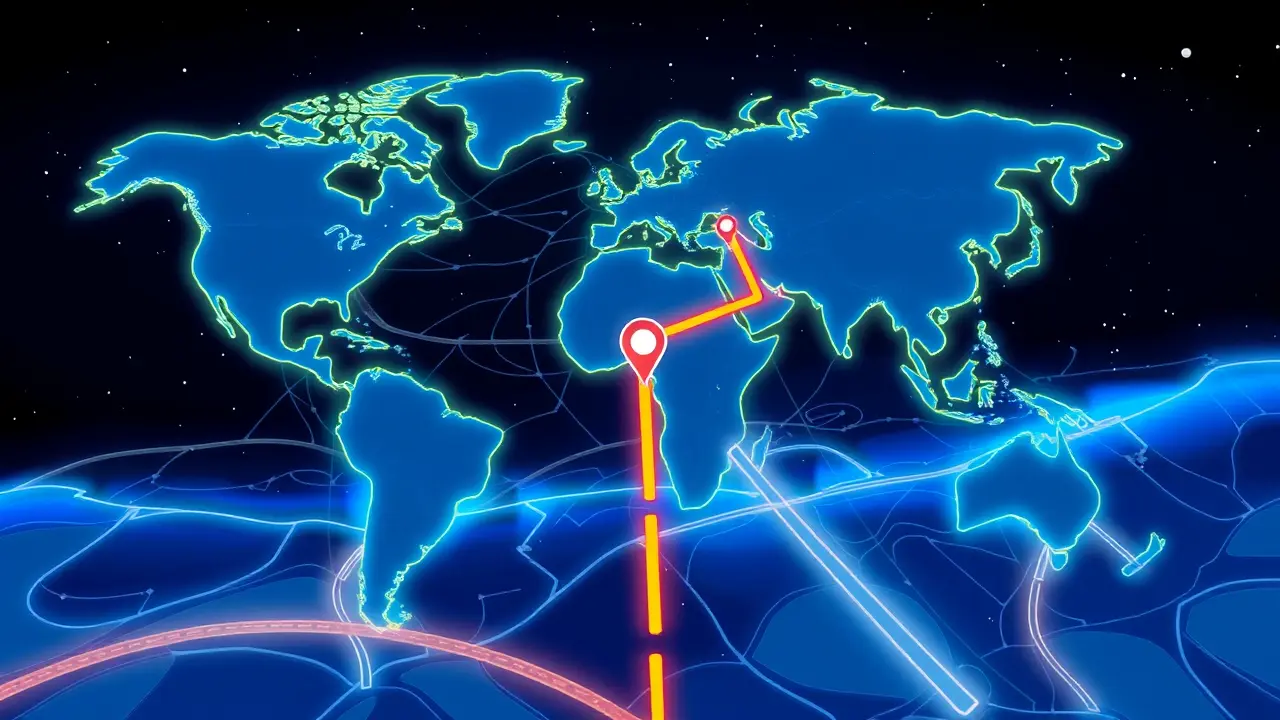
AInlp & speechSpeech Recognition
Google Maps Adds Gemini Voice Assistant for Hands-Free Navigation
SO
Sophia King
6 hours ago7 min read
The sterile, predictable world of turn-by-turn navigation is about to get a vibrant, conversational splash of color, as Google Maps integrates its Gemini AI assistant for truly hands-free exploration. This isn't just a simple voice command upgrade; it’s a fundamental shift in how we interact with the digital canvas of our world, transforming the map from a static, pre-rendered guide into a dynamic, collaborative co-pilot.Imagine you’re driving through an unfamiliar city, your hands firmly on the wheel, and you suddenly remember a friend’s cryptic recommendation for that 'amazing coffee shop with the blue door next to the old post office. ' Instead of fumbling with your phone, desperately trying to type while navigating traffic—a dangerous dance we’ve all performed—you simply converse with the void: 'Hey Google, find me a coffee shop with a blue door near an old post office.' Gemini doesn’t just parse the keywords; it understands the relational context, the visual landmark, the very essence of human-described space. It’s the difference between a robotic instruction manual and a chat with a well-traveled local who knows all the hidden gems.This leap is the culmination of years of UX evolution, moving from the clunky paper maps that required a passenger navigator, to the early GPS devices with their monotone, often hilariously mispronounced directions, to the slick but still largely pre-programmed smartphone apps we use today. Each step removed friction, but Gemini aims to erase it entirely, creating a fluid, intuitive interface that feels less like giving commands to a machine and more like brainstorming with a creative partner.The ability to change your route on the fly using natural language—'actually, let's avoid the highway, I'm not in a rush' or 'find me a scenic route along the water'—unlocks a new level of spontaneity and personalization in travel. It empowers the user to become the cartographer of their own journey, painting their path with verbal brushstrokes rather than being confined to the rigid lines of an algorithm's first suggestion.For creatives, for adventurers, for anyone who sees travel as an experience rather than a mere transaction from point A to point B, this is a liberation. The underlying technology, a sophisticated large language model fine-tuned for spatial reasoning and real-time data synthesis, is the engine, but the experience is pure artistry.It’s about designing a journey that feels uniquely yours. Of course, this brave new world of conversational navigation isn't without its potential shadows.Privacy advocates will rightly question the always-listening nature of such a deeply integrated assistant, and the accuracy of its interpretations in high-stakes situations—like complex multi-lane highway interchanges—will be paramount. There’s also the risk of over-reliance, of our own innate sense of direction and spatial awareness atrophying as we delegate even the smallest navigational decisions to the AI.Yet, the potential is breathtaking. This is a foundational step towards a future where our digital tools don't just obey, but comprehend and collaborate, blending the cold precision of data with the warm, messy, and beautifully illogical way we humans actually experience and describe the world around us. Google Maps with Gemini isn't just an update; it's the first stroke on a new canvas, inviting us to paint our journeys with the most natural tool we have: our voice.
#featured
#Google Maps
#Gemini
#voice assistant
#driving
#navigation
#hands-free
#AI integration
Stay Informed. Act Smarter.
Get weekly highlights, major headlines, and expert insights — then put your knowledge to work in our live prediction markets.
© 2025 Outpoll Service LTD. All rights reserved.